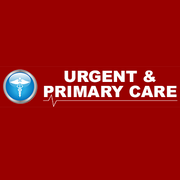
When you need immediate medical attention for a non-life-threatening emergency, an urgent care center—such as Urgent & Primary Care in the Greater Albany, NY, area—is often one of the best places you can visit. However, some people will put off treatment until they can be seen by their primary care physician as they are unsure if an urgent care visit will be covered by their insurance. To clear up some of this confusion, Urgent & Primary Care will answer a few questions people regularly have about urgent care and insurance coverage.
FAQs About Urgent Care Insurance Coverage
Does My Insurance Cover Urgent Care?
Although each insurance provider can have different rules for covering urgent care medical visits, in most cases insurance will cover urgent care at least partially. Usually, patients with insurance will only be required to pay either a copay or a deductible. However, there are times when a specific type of insurance will not be accepted by an urgent care facility. To avoid this, it is always best to call your local clinic to see if they accept your insurance.
How Much Will My Trip To Urgent Care Be After Insurance?
 Typically, for in-network urgent care visits, patients tend to pay a copay of $20 to $40. If you have to visit an out-of-network clinic, it could increase to anywhere between $35 and $100. If any of your visit is not covered by your insurance plan, your insurance provider will bill you later.
Typically, for in-network urgent care visits, patients tend to pay a copay of $20 to $40. If you have to visit an out-of-network clinic, it could increase to anywhere between $35 and $100. If any of your visit is not covered by your insurance plan, your insurance provider will bill you later.
Should I Visit Urgent Care Or The ER?
If you are suffering from a non-life-threatening emergency, it is in your own interests to choose urgent care over the emergency room. Even though your insurance plan will cover some of the ER costs, your remaining bill will be much greater than if you were to visit your nearby urgent care clinic.
If you have more questions about what your specific insurance plan and urgent care, contact Urgent & Primary Care today by calling (518) 479-5240. You can also visit them online to see the full list of urgent care services they provide as well as learn more about their primary care services, which include helping people who suffer from asthma and diabetes.
About the Business
Have a question? Ask the experts!
Send your question

